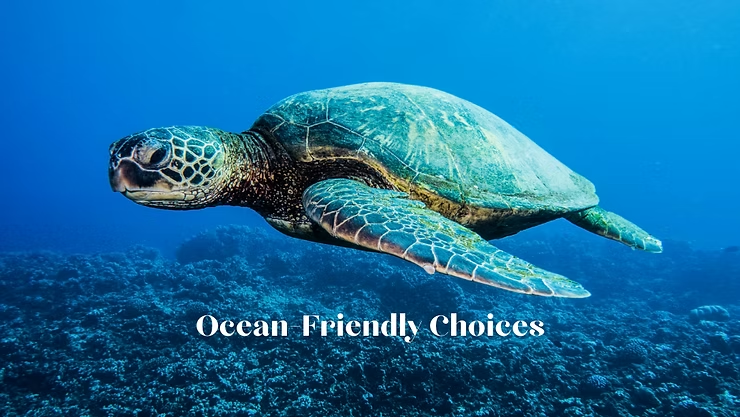Overview
The Importance of the Ocean
The ocean acts as Earth’s superhero, absorbing carbon dioxide, producing oxygen, and regulating climate. Unfortunately, human activities such as pollution and overfishing threaten its health. From coral reefs to marine species, the balance of this ecosystem is under pressure. It is time for us to step up and take responsibility to safeguard this vital resource.
Threats to the Ocean
Our oceans face growing threats including plastic waste, overfishing, and climate change. Plastic, especially single-use items, lingers for centuries and harms marine life. Overfishing disrupts ecosystems by depleting fish stocks, while climate change drives rising temperatures, acidification, and coral bleaching. Immediate action is needed to preserve ocean health for generations to come.
Taking Responsibility
Protecting the ocean requires active participation. Awareness alone is not enough; individual choices matter. By reducing plastic use, supporting sustainable seafood, and backing conservation initiatives, each of us can help shape a healthier future for our oceans. Responsibility begins with daily decisions and collective commitment.
Reducing Plastic Waste
Say No to Single-Use Plastics
Refusing items such as bags, straws, and bottles reduces waste in oceans. Choose reusable alternatives like cloth bags, stainless steel straws, and refillable bottles to make a lasting difference.
Choose Reusable Alternatives
Switching to reusable shopping bags, food containers, and water bottles minimizes plastic pollution and even saves money over time. Small daily actions add up to a large impact on ocean health.
Support Plastic-Free Initiatives
Supporting businesses, communities, and policies that prioritize sustainable alternatives accelerates change. Every choice to shop plastic-free or advocate for new policies strengthens the fight against plastic pollution.
Sustainable Seafood Choices
Know Your Seafood
Informed decisions about seafood matter. Look for certifications such as the Marine Stewardship Council (MSC) or Aquaculture Stewardship Council (ASC). Support local fishermen who follow responsible practices and help preserve marine ecosystems.
Choose Sustainable Fishing Practices
Opt for seafood harvested with eco-friendly methods like pole-and-line, traps, or harpoons. These approaches protect biodiversity and ensure that fish populations remain healthy for the future.
Support Local and Responsible Fishermen
Buying from local fishermen supports communities and reduces environmental impact from long-distance shipping. Certifications and direct sourcing ensure seafood comes from sustainable practices while strengthening local economies.
Protecting Marine Life
Avoid Harmful Chemicals
Everyday products can harm oceans. Choose biodegradable cleaning products and non-toxic alternatives. Select reef-safe sunscreens when swimming to protect coral ecosystems.
Practice Responsible Tourism
- Stay in eco-friendly accommodations
- Respect marine animals by avoiding contact or feeding
- Follow local snorkeling and diving rules
Responsible tourism ensures coastal areas and marine life remain intact for future visitors and ecosystems alike.
Support Marine Conservation Efforts
Volunteer for beach cleanups, coral restoration, or donate to conservation organizations. Raise awareness through events and social media to inspire wider community action. Every effort contributes to safeguarding marine biodiversity.
Conclusion
Protecting marine life is essential for a sustainable future. At Save Our Blue Ocean, we are committed to raising awareness and supporting conservation. Our turtle, shark, and whale bracelets symbolize this mission, offering not just style but a statement of commitment. By choosing a Save Ocean bracelet, you support ocean conservation and help create a better world. Join us in preserving the beauty and vitality of our blue planet.

